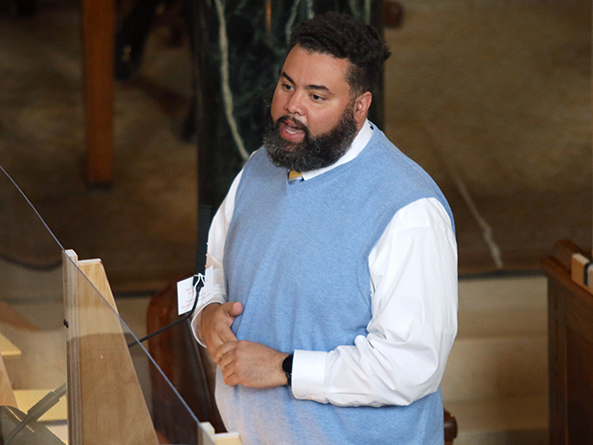Session Review: Urban Affairs
Lawmakers established inland port authorities, implemented provisions of an economic development-related constitutional amendment, updated annexation law and created a registry for home inspectors.
LB156, introduced by Omaha Sen. Justin Wayne, allows up to five inland port authorities to be established in Nebraska. An inland port authority may be established in a metropolitan, primary or first class city or a county with a population of greater than 20,000.
A qualifying city and one or more counties that contain a qualifying city — or in which the extra-territorial zoning jurisdiction of such a city is located — also may form a joint inland port authority.
To be eligible, an inland port site must be at least 300 acres in area and meet two of the following criteria of being within:
• one mile of a navigable river or waterway;
• one mile of a major rail line;
• two miles of a major airport; or
• two miles of any federal interstate or any four-lane divided highway.
An inland port authority is authorized to engage in marketing activities, issue and sell revenue bonds and acquire rights-of-way and property. All authorities established under the bill will be administered by an appointed governing board.
Lawmakers passed LB156 on a 47-0 vote.
Wayne also introduced LB25, which implemented the provisions of a constitutional amendment approved by voters in 2020. The bill, passed 48-0, extends the maximum repayment period for tax-increment financing from 15 years to 20 if more than one half of the land in a project is designated as extremely blighted.
Nebraska home inspectors will be required to register with the state beginning Jan. 1, 2023, under a bill introduced by Omaha Sen. Steve Lathrop. LB423 requires inspectors to register with the Nebraska secretary of state, pay a fee and provide a certificate of general liability insurance of not less than $250,000. The bill establishes a maximum registration fee of $300 and allows an inspector to list any national home inspection certification he or she holds.
Senators passed LB423 on a vote of 41-2.
LB9, introduced by Bellevue Sen. Carol Blood, deems land, lots, tracts, streets and highways as contiguous to a first class city for annexation purposes even if areas owned by the federal government are located between potentially annexed land and a city’s corporate limits.
Any changes to electrical service require approval of the electric utility currently serving the potentially annexed area. LB9 also allows for a special valuation of agricultural or horticultural land within the boundaries of a city or village if the land is subject to air installation compatible-use zone regulations or is within a flood plain.
The bill, which passed 46-0 and took effect immediately, applies only to first class cities located in counties with at least three first class cities.
LB131, introduced by Sen. Megan Hunt of Omaha, adds “or as otherwise provided by law” to the list of reasons a municipality may waive reading an ordinance three times before its adoption.
The measure, passed 40-7, includes provisions of seven other bills:
• LB99, introduced by Fremont Sen. Lynne Walz, which exempts areas designated as extremely blighted from the maximum percentage of a city or village that may be designated blighted under the Community Development Law;
• LB161, introduced by the Urban Affairs Committee, which makes several technical changes to the Building Construction Act;
• LB162, also introduced by the committee, which establishes uniform procedures to detach territory from a municipality’s corporate limits;
• LB218, introduced by Wayne, which adopts the 2018 Uniform Plumbing Code as the state’s default plumbing code;
• LB549, also introduced by Wayne, which allows municipalities that operate a natural gas plant or natural gas system to apply to the state for emergency grant funding to cover up to 80 percent of extraordinary costs associated with an extreme weather event and provides a one-time, $4 million general fund transfer to fund the grants;
• LB556, introduced by Lincoln Sen. Matt Hansen, which clarifies that municipalities may add requirements to a redevelopment contract to comply with their comprehensive redevelopment plan, affordable housing action plan or other goals established by the municipality; and
• LB647, introduced by Norfolk Sen. Michael Flood, which allows first class cities to increase their bonding threshold from $2 million to $5 million when constructing or buying a public building without a vote of the people.
Sanitary and improvement districts can build off-street parking facilities under LB81, introduced by Sen. Robert Hilkemann of Omaha. The bill, passed 40-0, enables SIDs to acquire, purchase, own, erect, construct, equip, operate or maintain off-street parking facilities.


